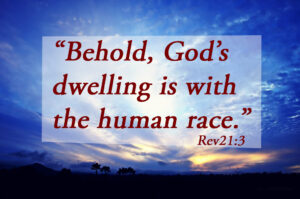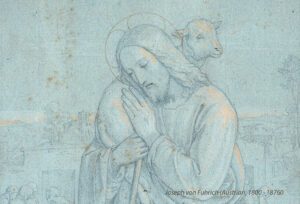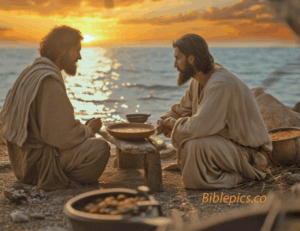“Woe to the complacent in Zion! Lying upon beds of ivory, stretched comfortably on their couches, . . . yet they are not made ill by the collapse of Joseph!” Amos 6:1,7
“The rich man said, ‘Then I beg you, father, send him (Lazarus, the “poor” man in heaven while the “rich” man is in hell) to my father’s house, . . . so that he may warn them, lest they too come to this place of torment.’ ” Luke 16: 27-28
+++++
In the first reading, Amos chastises the “complacent” who have allowed their pursuit of the good life to suffocate their ability to be ”made ill by the collapse” of their brothers and sisters. That same lack of empathy for others, that warping of our humanity (Humanity was created in God’s likeness!), brought Jesus to tell his and our generations the Gospel story of Lazarus in the grip of the blind-to-others’-needs “rich” man.
Let’s not be like that rich man who only after death recognized what was really happening during his life. Let’s see things rightly now. Let us strive to make the required reversals (conversions) so that we and our brothers and sisters will share in the physical and spiritual riches which belong, not to us alone, but to all of us because all of us are the children of God, sisters and brother to each other.
When we leave Mass this and every weekend, let’s go back into our everyday lives with a little less complacency and a little more sensitivity to “feeling ill” upon encountering our suffering brothers and sisters.
Note:
Coincidentally, this week’s Bible Study session topic was the Old Testament Book of the prophet Amos. In the lecture, Lesson 16 of the Yale Online Course on the Old Testament, Dr. Christine Hayes says:
“The essence of God is God’s moral nature. Moral attributes are the essence of God himself.” Some scripture scholars note that God, who requires justice and righteousness and compassion from human beings, is Himself just and righteous and compassionate. “This is the prophetic view. The moral person can metaphorically be said to share in divinity. This is the kind of apotheosis (elevation to divine status) that you find in the prophetic writings, not the idea of a transformation into a divine being in life or even after death, but the idea that one strives to be god-like by imitating his moral actions, the idea again of imitatio dei.”
This last sentence is very instructive and, in our discussion, we added a twist to it.
- To share in divinity is what “made in the image and likeness of God” implies and, more strongly, affirms for us. (Genesis 1:26 reads, “Then God said: Let us make human beings in our image, after our likeness.)
If you want to reinforce this by what you see in yourself and those around you, think about your tendency to want the very best for the people you love. Parents want the best for their children and, even when one’s offspring does something very, very bad, the parental tendency isn’t to stop loving, but to hope, to try to guide the child toward the goodness the parent senses in in him. Why are we humans that way? God’s justice, righteousness and compassion – God’s life is within us.
- It is more than just striving to be God-like. That sounds too much like trying to change to something else, to alter what is there to make it something else. Rather than a striving to be God-like, it is more a clearing away whatever is within us that prevents the likeness of God from taking over our minds and hearts – thus letting the unique expression of God within us be the source of our thoughts, our words and our actions.
Sister Loretta Fernandez RSM




